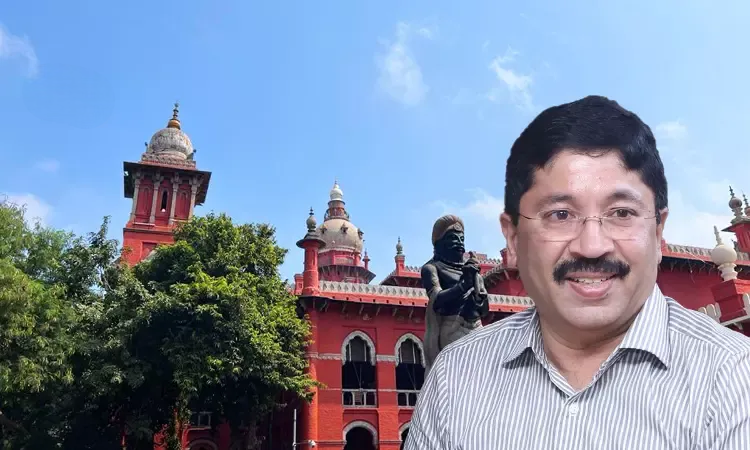Introduction
In a significant legal development, the Madras High Court has issued a notice regarding an election petition challenging the victory of Dayanidhi Maran in the 2019 general elections. The petition raises critical questions about the validity of the election process and the integrity of the results, marking a crucial juncture in the political and legal landscape of Tamil Nadu.
Background of the Case
Dayanidhi Maran, a prominent leader of the Dravida Munnetra Kazhagam (DMK), secured a decisive victory in the 2019 Lok Sabha elections from the Chennai Central constituency. However, this victory has been called into question by an election petition filed by a voter named M. Karunanidhi. The petitioner alleges various irregularities and malpractices during the election process, including violations of the Representation of the People Act, 1951.
Allegations Raised in the Petition
The petitioner has raised several serious allegations against Maran and the election process in general. These include accusations of corrupt practices, improper conduct by election officials, and manipulation of the electoral rolls. The petition specifically points to discrepancies in the voter lists, alleging that ineligible voters were included while eligible voters were deliberately excluded. Such actions, according to the petitioner, have skewed the election results in favor of Maran.
Legal Grounds of the Petition
The petition is anchored on the legal provisions of the Representation of the People Act, 1951. The petitioner argues that the alleged malpractices violate sections of the Act that ensure free and fair elections. The Act lays down stringent rules regarding the conduct of candidates, the role of election officials, and the integrity of the electoral process. Any breach of these provisions is grounds for the election to be declared void, as sought by the petitioner.
Response from Dayanidhi Maran
In response to the petition, Dayanidhi Maran has denied all allegations, asserting that his victory was achieved through a fair and transparent process. Maran’s legal team has argued that the petition lacks substantial evidence and is politically motivated. They maintain that the election was conducted under the strict supervision of the Election Commission of India, which ensures adherence to all legal norms and standards.
Court's Consideration and Notice
The Madras High Court, taking cognizance of the petition, issued a notice to Dayanidhi Maran, seeking his response to the allegations. The court's decision to issue a notice indicates that it finds the issues raised in the petition worth examining, although it does not imply any prejudgment of the case. The court has also directed the Election Commission to submit its report on the conduct of the elections in the Chennai Central constituency.
Implications of the Case
This case holds significant implications not only for Dayanidhi Maran but also for the broader electoral process in India. If the court finds merit in the petitioner's claims, it could lead to the annulment of Maran’s election, necessitating a re-election in the constituency. Moreover, the case could set a precedent for how similar allegations of electoral malpractices are handled by the judiciary, potentially impacting future elections across the country.
Legal Precedents and Comparison
The petition against Dayanidhi Maran is not an isolated incident in Indian electoral history. There have been several instances where election results were challenged in courts, leading to re-elections or disqualifications. For instance, the famous case of Raj Narain vs. Indira Gandhi in 1975, where the Allahabad High Court invalidated the election of then Prime Minister Indira Gandhi on grounds of electoral malpractice, serves as a landmark precedent. The current petition draws parallels with such cases, highlighting the judiciary's role in upholding the sanctity of democratic processes.
Future Proceedings and Timeline
The case is set to proceed with the court examining the evidence presented by both parties. The Election Commission's report will play a crucial role in determining the outcome of the case. The timeline for the final judgment will depend on the court’s assessment of the evidence and the legal arguments presented. As the case unfolds, it will be closely watched by political analysts, legal experts, and the public, given its potential to influence not only Maran’s political career but also the integrity of electoral processes in India.
Conclusion
The notice issued by the Madras High Court in the election petition against Dayanidhi Maran underscores the importance of judicial scrutiny in electoral matters. As the court delves into the allegations of electoral malpractice, the case will serve as a critical test of the legal safeguards designed to protect the integrity of India’s democratic process. The outcome of this case could have far-reaching consequences, reinforcing the judiciary’s role as a guardian of free and fair elections.










0 Comments
Thank you for your response. It will help us to improve in the future.